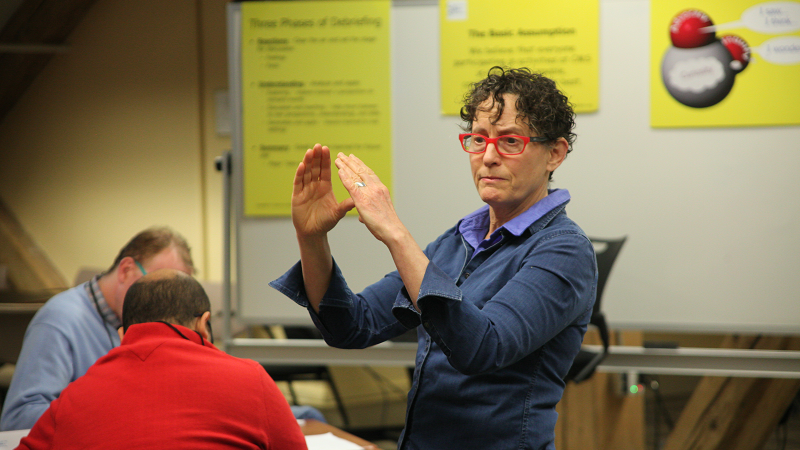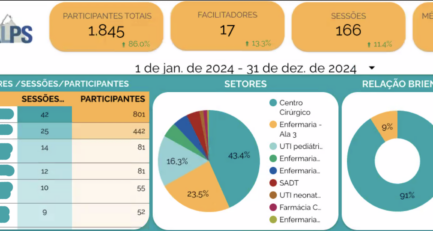
On a recent episode of Simulcast, Jenny Rudolph talks with Victoria Brazil about rapport building, working off of Jenny’s recent publication on rapport management with Marc Auerbach and Adam Cheng. The editorial comments on May Eng Loo and colleagues’ research using the Spencer-Oatey Rapport Management Model. During the podcast, Jenny and Victoria discuss two ways to manage rapport:
- Building rapport by strengthening connections between educator and learner.
According to May Eng Loo and colleagues there are three key considerations to building and maintaining rapport in simulation and debriefing.
- Play fair! Be transparent about the rules of engagement and follow through with what you say will happen. Changing the rules or using rules that favor faculty may make learners think faculty are “cheating” and this weakens rapport.
- Help learners save face. Give them the benefit of the doubt, respect them by showing interest in their perspective. Conventionally, to help learners “save face” instructors hide their judgment or pretend they don’t have one. Rather, to build rapport, hold learners to high standards while also holding them in high regard. “Caring personally while challenging directly” as Kim Scott advocates in her book Radical Candor, shows confidence in learners at a deeper level, and can strengthen rapport.
- Help learner’s meet their goals. Eng Loo and colleagues advocate a simple, direct way to “meet the learner where they are:” What are the learners’ goals? What their interests? A simple, direct way to build rapport is to help reach them.
- Building Rapport through non-verbal techniques.
Switching gears, Jenny and Victoria then discuss the role of non-verbal techniques in rapport building. Jenny describes the techniques of and research on Milton Ericson, a highly regarded psychiatrist, who used a host of non-verbal techniques to build rapport.
Adjusting Tone, Volume, and Vocal Pacing
When two speakers have different vocal styles, for example one person talks “slow and low” and the other speaks “fast and furious,” there is an immediate mismatch in communication. This can work against a debriefer when trying to build rapport for learning.
“A simple thing that any debriefer can do is match the pacing of other people in the debriefing and that may mean adjusting a little bit to different learners,” explains Jenny. She goes on to explain the process of “matching and leading.” A speaker “matches” a person’s speaking style, for example increasing speech volume to match a loud talker, and then “leads” them back to a softer volume by gradually reducing the volume of their voice. This approach implicitly conveys interest and respect for the learner by “meeting them where they are” non-verbally. Contrast that to telling an angry person who is yelling to calm down in using a quiet voice and low intensity. This inherent mismatch can make the angry person feel disrespected or belittled.
Matching Body Language
Someone leaning back in their desk chair, hands behind their head exudes a different vibe than a person sitting hunched over with their elbows on their knees. Our body language can signal to others that we are feeling: nervousness, excitement, boredom, etc. A way to connect with another person non-verbally is to again, match what the receiver is doing with their body. Jenny explains, “Often if you very subtlety and gradually match their physical positioning that also can be a subtle way to build rapport.” The danger here is doing this in a way that feels like mimicking to the person you are matching; which could be perceived as insulting.
Influencing with Integrity
During the podcast, Jenny notes that using these methods should be done responsibly. When you know what the levers for building rapport are, you can use them cynically to manipulate people. So Jenny notes: “Any of these “techniques” of building rapport can be used for light or dark. I try to think about this as influencing with integrity. I want to use my commitment to helping other people be their best self and my commitment to trying to be honest and straightforward with people and use these techniques in that way. They certainly can be used in other ways but I’m not advocating that.”
Vic Brazil sums it perfectly by quoting Spider-Man: “‘With great power comes great responsibility’”
Listen to the full episode of Simulcast
References
Auerbach, Marc, Cheng, Adam, Rudolph, Jenny W. Rapport Management: Opening the Door for Effective Debriefing. Simulation in Healthcare: February 2018 – Volume 13 – Issue 1 – p 1–2
Loo ME, Krishnasamy C, Lim WS. Considering face, rights and goals: a critical review of rapport management in facilitator-guided simulation debriefing approaches. Simul Healthc 2018;13(1):53–61.
https://www.ncbi.nlm.nih.gov/pubmed/29076968
Laborde GZ. Influencing with Integrity: Management Skills for Communication and Negotiation. Carmarthen, United Kingdom: Crowne House Publishing; 1995.
Simulcast: Rapport with Jenny Rudolph
http://simulationpodcast.com/52-2/

